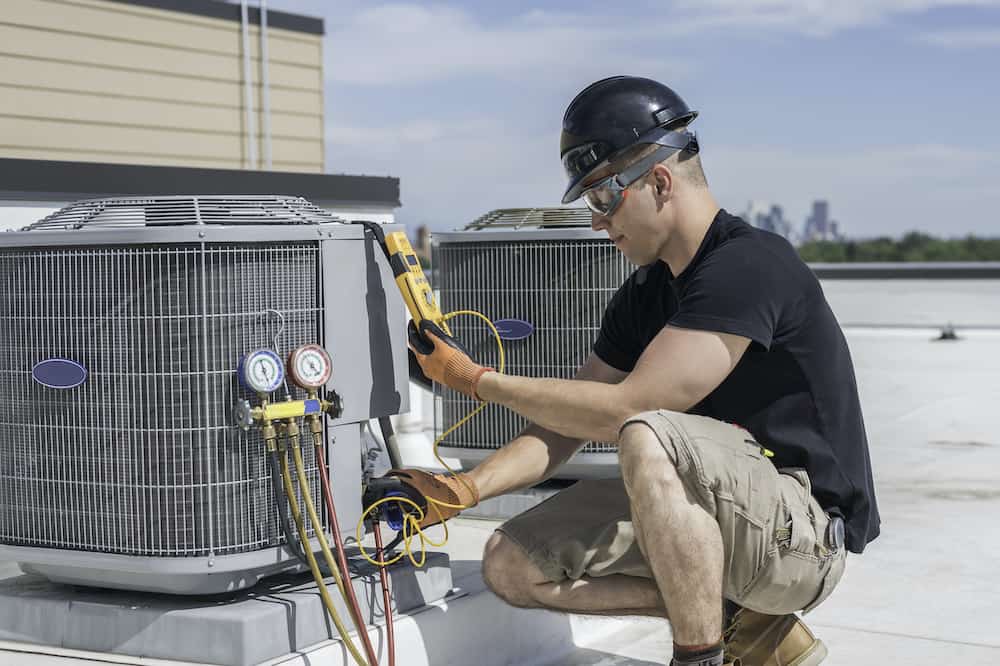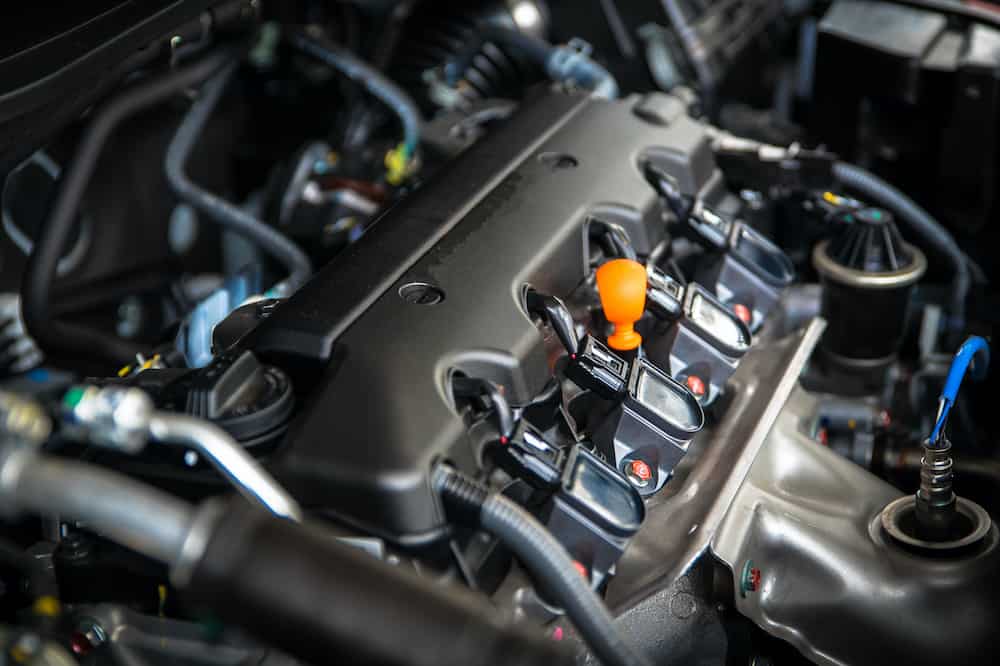Knowing how to convert CC to HP can be particularly useful for making calculations. For example, when dealing with small appliances, you’ll need to consider engine size and power. Fortunately, converting each is quite simple to help you find the perfect power tools.
What Is CC?
CC refers to cubic centimeters, a measurement used to express engine displacement. It’s in the same league as quarts, pints, and other units used to measure volume.
When CC is used in product descriptions, it tells you the amount of volume the pistons move in a single revolution.
To put it simply, the bigger and stronger an engine is, the higher the CC rating will be due to more massive displacement. Horsepower, on the other hand, measures an entirely different metric.
Why Does Engine Displacement Matter?
You might think that horsepower is all that matters when it comes to selecting tools, when, in fact, engine displacement determines the torque and horsepower the engine produces.
The direct correlation of CC to HP is that the higher the CCs, the more power the engine will create. A few other reasons you must consider about engine displacement include:
Fuel Consumption
This theory also applies to horsepower, as more powerful engines consume more fuel. The higher the CC rating of your tools, the more fuel you’ll go through as the air/fuel mixture is greater.
With that said, it’s common to expect a larger engine will consume more fuel for power.
Maintenance
Larger engines are also going to become more costly over time, especially as they need more maintenance.
Not only will they be consuming more fuel, but they’ll also require more power to run. The more powerful the engine is, the more wear and tear it will experience over time.
Whether it’s your vehicle, a lawn mower, tractor, other equipment, power tools, etc., you must always get regular maintenance for powerful engines.
What Is HP?
HP is also referred to as horsepower and describes the amount of work that an engine does. You’ll often find that it’s one of the most advertised features of small and large engines alike, especially in vehicles.
Farm equipment is another industry that frequently relies on horsepower ratings. You’ll often find tractors advertised as having specific drawbar, engine, and PTO horsepower ratings. PTO generator
With that said, horsepower gives a general baseline for the amount of effort an engine puts into its task.
Factors That Affect HP
Many other features, such as torque, determine the total power an engine can provide. Other factors include:
Weight
The heaviness of the tool or vehicle is one of the main factors that can influence horsepower ratings. The heavier a vehicle is, the more horsepower it will take to make the vehicle move.
You can easily see this in action if you were to look at a car compared to an SUV. Cars will have less horsepower because their bodies and internal components are much lighter.
Hauling and Towing
When you start shopping for specific vehicles, such as trucks and farm equipment, hauling performance is essential.
Not only will you have to factor in the weight of the vehicle, but the weight of what you’re towing, as well. For example, if you’ll be hauling a trailer, you’ll want a vehicle with a higher CC to HP rating.
Speed
You’ve likely seen sports cars with exceptionally high horsepower ratings. As the engine will provide more power, it allows smaller vehicles to catapult at exceptional speeds.
Most of the popular sports cars on the market have speed ratings to consider. These ratings make it much easier to see the effect of heightened horsepower ratings.
One of the simplest ways to determine speed is to look at your desired vehicle’s 0-60 mph value. The car that takes less time to reach 60 mph will have a higher HP.
Fuel Consumption
When it comes to fuel, you’ll find that it’s more than horsepower that affects your fuel consumption.
More powerful tools will require more fuel to have the engine and other components operate efficiently. This is why larger gas-operated appliances need to be refueled regularly.
If you want a tool with an exceptional fuel economy, it’s best to opt for a less powerful engine. Alternatively, battery-powered and electric tools are a great way to avoid expensive fuel altogether.

How to Convert CC to HP
You might have a better understanding of HP to CC and vice versa. Fortunately, most products will provide both values in their descriptions or packaging.
Because CC and HP measure two different measurements, you cannot make a direct conversion between the two.
However, most manufacturers suggest that 15 cubic centimeters loosely correlates to one unit of horsepower. There are also some that note 17 cubic centimeters equate to one unit of horsepower.
To put these values to use, all you have to do is convert the total number of CCs by 15 or 17 to get horsepower.
For example:
1800cc engine/15=120 horsepower
1800cc engine/17=105.9 horsepower
It’s important to note that this formula won’t work for every small engine you look at. You must always consult the owner’s guide of your generator or small tools beforehand.
You’ll need to take the specific type of tool you’re working with to determine which conversion is best.
CC to HP: Snow blowers
One example of where a traditional CC to HP conversion doesn’t work is with snow blowers. The conversion differs because a snow blower’s engine requires more engine displacement to generate one horsepower.
If you were to compare the HP conversion of a motorcycle to a snow blower, a snow blower needs more CCs.
On average, it can take up to 35cc to generate one horsepower in a snow blower. The CC to HP conversion formula then changes to 243cc engine/35 = 6.9 horsepower.
It’s crucial you determine the real strength behind your engine to decide which conversion method is best.
CC to Horsepower: Why the Conversions Matter
When you’re able to convert CC to HP as well as HP to CC, it can be easier to choose tools and use a generator. You’ll also get a general idea of the power available from a particular engine.
Even though they measure two separate components, they are directly related to how strong your engine will be.

